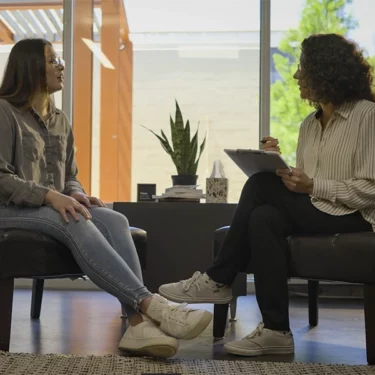For youth and young adults, navigating life can be challenging enough. Add a global pandemic to the mix, and well, things get wonky. In honor of Mental Health Month, I sat down with John Dellick (pictured right), a college student and member of the National Council’s CONNECTED, a youth mental health initiative, to talk about the new normal, proactive parenting and turning challenges into opportunities.
How has COVID-19 impacted you personally?
“The pandemic has impacted my emotional and mental well-being in several ways. Essentially, what’s been normal for me my entire life … its all of a sudden shifted. For example, I used to interact with my friends on a daily basis. Now, not being able to do that, I’ve been feeling more isolated. I’ve been in my head more. I’ve had to get creative when it comes finding ways to get outside of my head, and that’s not an easy thing to do. I try to have a routine. Something that brings normalcy back to my life. Wake up, have breakfast, do some meditation, work out, do schoolwork … I create regularity.”
How are you staying mentally strong during these challenging times?
“I’ve been trying to stay in contact with friends, but it’s been difficult. I know a lot of people find connection on social media, but I’m not one of those people. It’s a lot of stress for me, trying to keep conversations going both online and in my real life. I try to pick up the phone and call friends, even if it’s just one person a day. Because that’s one conversation that gets me out of my head. Just checking in on someone else, being of service to them, it creates a bright spot in my day. I also try to get outside of the house, get short walks in – any sort of movement.”
How are your parents helping you move forward?
“I love my parents. They care about me a lot, and they try to make sure I’m aware of new information about COVID-19, the economy and so on. But I already know a lot of it. So, it can become information overload at times. I’m grateful they are looking out for me, but sometimes it adds more pressure. For example, when I’m told something I already know, I think it must be worse than it actually is.”
What’s something adults should know when supporting youth during the pandemic?
“Encouragement. That’s what youth can use the most. Instead of saying, ‘This is how you do this, make sure you stay on top of your schoolwork,’ and so on, offer a bigger perspective. Help them reframe how they’re seeing things. This pandemic isn’t happening to them only. When I’m getting into my depression, I see everything as a burden. I need to be reminded that through all of the pain, good things can come from it. It teaches me how to cope in new ways, and then I can pass those tools on to help others.”
Why did you decide to join CONNECTED, and what value does the program provide?
“CONNECTED has been a real blessing in my life. Getting to work with people and being part of a peer group, it’s helped me find who I am and how to express myself. That was something relatively new to me. I’ve never just let myself be and share my thoughts. But we’ve created a safe space, and I now feel totally comfortable sharing my ideas and receiving feedback. It’s given me confidence in myself.
“The program has opened my eyes to my potential, and now I can be myself everywhere else. It’s been a journey of self-discovery so far, one where I get to work with people for a great cause. Sure, dealing with my depression is a battle most days, and yeah, I get my butt kicked. But then there are those other days when I can overcome it and help others with their demons. I’m grateful for that.”
Guest Author
Director of Content Marketing
National Council for Mental Wellbeing


